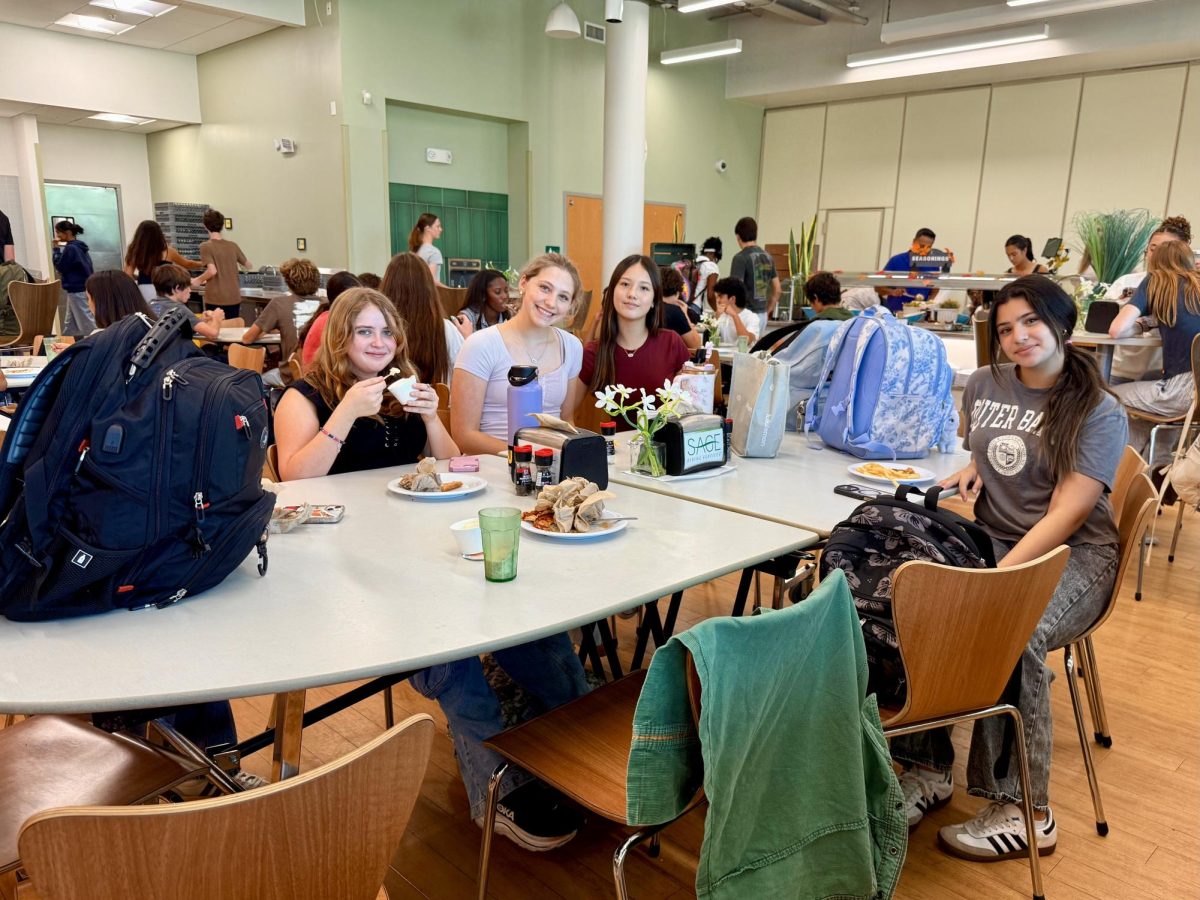Freshmen walk into the cafeteria, food and lemonade in hand, and have no choice but to sit at their assigned table.
As they sit, they observe the upperclassmen laughing across SAGE, sitting wherever they want, maybe even leaving campus for lunch. The difference is crystal clear: those students have independence, freshmen don’t — well, not yet, anyway. Some view these rules as micromanagement. Others, a safety net.
At first glance, these policies are easily perceived as unnecessary and restrictive, especially compared to the autonomy of upperclassmen. However, discussions with administration as well as students themselves reveal a not-so-simple reality. A closer look reveals that, perhaps, the rules are actually more valuable than some may think.
“The goal is that the rules we have are meant to help freshmen make smart choices,” US Spanish Teacher and 9th Grade Dean Al Irwin said.
Irwin believes that these rules aren’t meant for punishment, but for preparation. Starting early allows students to effectively develop these skills throughout their time in Upper School.
“We are simply putting supports in place to set you up for success, so that when we do release you to full freedom, you know where the boundaries are,” he said. The biggest thing Irwin wishes for the student body to comprehend is that the establishment of these rules for the freshman class is meant to guarantee a smooth transition from one year to the next.
But of course, we couldn’t just talk about the rules without hearing from the people they affect most: the freshmen themselves. Freshman Paige Conroy does believe the rules often questioned are, in fact, beneficial. “I think the rules are fair because we’re new, [and] we’re still learning the Upper School rules,” she said. Although the structure can seem intimidating and limiting for some, to others, it’s a set of training wheels that will allow them to ride through high school more easily.
Even though these regulations are valuable, there’s still room for improvement. “I think especially in the future, maybe not leaving until one o’clock, that should change because it could give people more time to study,” Conroy said.
More flexibility will allow students to use their time wisely. Whether that’s getting a study room, taking a trip to the library or simply catching a break from the school day, any leeway could allow students to use their time more efficiently than before.
Irwin says these are for the benefit of ninth graders, and shockingly, so do many freshmen themselves.

Several students, however, just aren’t seeing eye-to-eye and view these policies as restrictive. Junior Cici Smith believes these rules act as a barricade against social growth and forming relationships across grade levels.
But that simply isn’t the case. When embarking on new journeys, it’s essential to have structure and something to lean back on. Though even upperclassmen aren’t always in favor of these policies, I can’t help but stand behind the rules. The way Irwin and many 9th graders perceive them, they’re more than necessary.
So, where does that leave us? To some, these restrictions are uncalled for. But to me, they offer stability for freshmen. Think of the restrictions as a test run, practice for soon-to-be-gained independence. So, no, these policies aren’t roadblocks hindering the journey; they’re ramps to freedom.